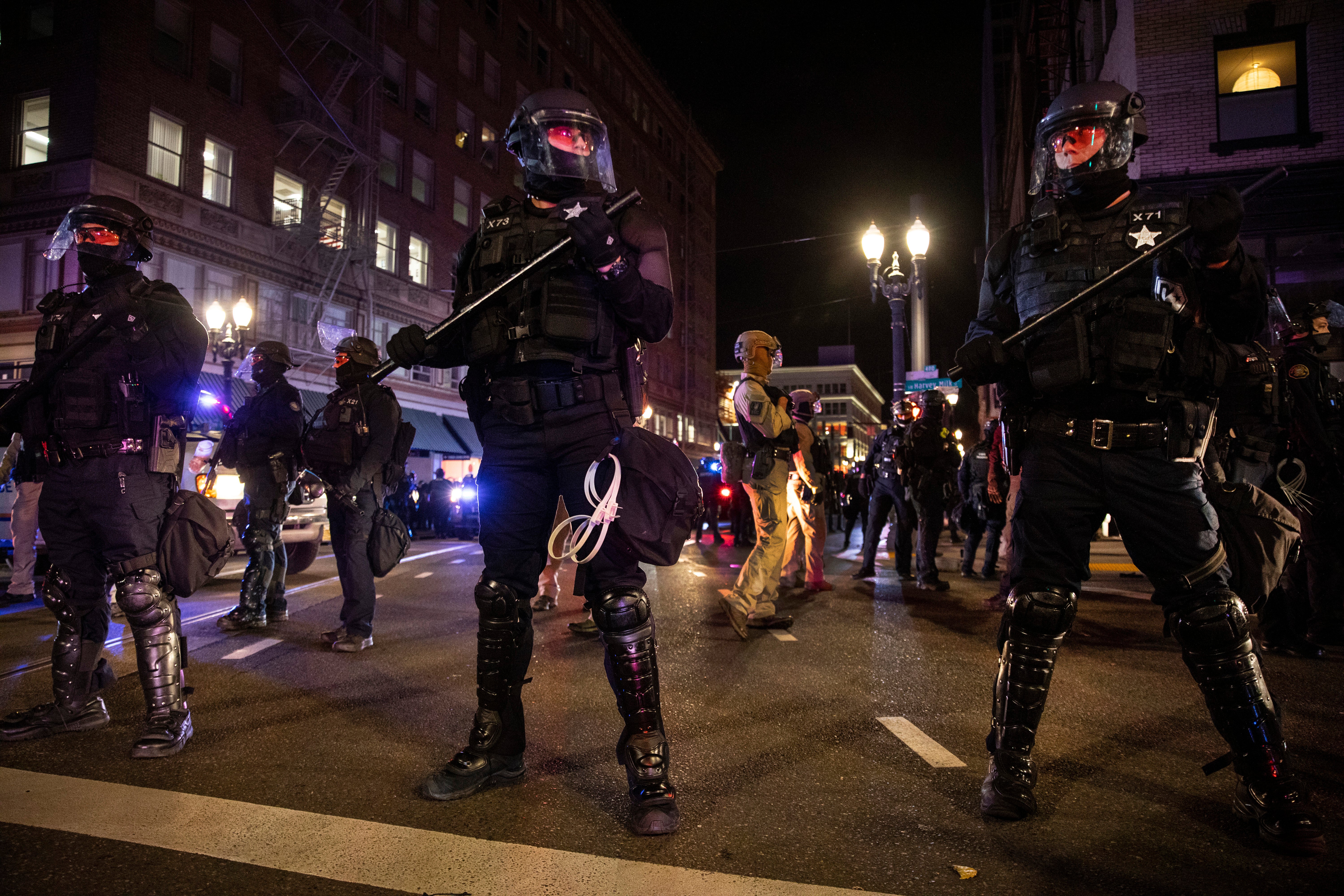In bipartisan unity, police reform bills advance in Oregon
Republicans and Democrats on the Oregon House Judiciary Committee unanimously approved almost a dozen bills on police reform, a show of bipartisan unity in a Legislature that has been divided along party lines

Your support helps us to tell the story
From reproductive rights to climate change to Big Tech, The Independent is on the ground when the story is developing. Whether it's investigating the financials of Elon Musk's pro-Trump PAC or producing our latest documentary, 'The A Word', which shines a light on the American women fighting for reproductive rights, we know how important it is to parse out the facts from the messaging.
At such a critical moment in US history, we need reporters on the ground. Your donation allows us to keep sending journalists to speak to both sides of the story.
The Independent is trusted by Americans across the entire political spectrum. And unlike many other quality news outlets, we choose not to lock Americans out of our reporting and analysis with paywalls. We believe quality journalism should be available to everyone, paid for by those who can afford it.
Your support makes all the difference.Republicans and Democrats on the Oregon House Judiciary Committee unanimously approved almost a dozen bills on police reform, a show of bipartisan unity in a Legislature that has been bitterly divided.
The bills approved Tuesday evening involve regulating use of tear gas, requiring a publicly accessible database that names officers disciplined for misconduct, and limiting arbitrators’ decisions on officers’ misconduct cases.
Gov. Kate Brown congratulated the committee for pushing forward so many reforms in the wake of the death of George Floyd last May in Minneapolis. Black Lives Matter demonstrations were held in cities across Oregon after Floyd died in police custody. In Portland, protests went on for more than 100 straight days.
“During this past year, more than ever, we’ve seen Oregonians, urban and rural, standing up to make their voices heard in calling for racial justice and police accountability — even in the middle of a pandemic — because the need for change is so pressing,” Brown said.
Sandy Chung, executive director of the American Civil Liberties Union of Oregon, said the committee's action represents "important, bipartisan steps to make necessary reforms for Oregon communities.”
The action by the committee, whose meetings are held remotely by video, was all the more remarkable because recent legislative sessions in Oregon have been acrimonious, with walkouts by minority Republicans in 2019 and 2020. This year's session has been marked by a slow-down tactic by Republicans insisting that bills be read in full on the House floor.
Rep. Christine Drazan, the Republican leader in the House, came on as a guest speaker to praise the committee for its bipartisan cooperation. Over many weeks, the committee's six Democrats and four Republicans had debated and heard public testimony on the bills. They also hammered out dozens of amendments
"I could not be more proud that we can come together tonight in mutual support of a package of bipartisan amendments that will allow us to work together to support more fair, equitable and transparent policing across our state,” Drazan said.
The committee then proceeded to unanimously approve nine police reform bills. Another bill, requiring police to be trained in airway and circulatory anatomy and physiology, was unanimously passed on April 1.
Oregon Attorney General Ellen Rosenblum said the package can transform police work, and how officers are perceived.
"This is a significant and important step for Oregon, which will not only address the issues of police violence and access to justice, but will also help our communities to build faith in law enforcement and in our justice system,” Rosenblum told the committee.
The bills, which go to the House floor for a vote or to the Ways and Means Committee for funding, would, among other things:
— Set the groundwork for equity training as part of basic training for police officers, and add at least one member from a marginalized or historically underrepresented community to the Board on Public Safety Standards and Training
— Regulate use of chemical agents, impact projectiles and sound devices by law enforcement
— Have the Oregon Criminal Justice Commission establish a detailed statewide database on use of physical force by police and deaths in custody. The database must be searchable and available to the public.
— Require the Department of Public Safety Standards and Training to create a uniform background checklist for law enforcement agencies to use when hiring, and to include applicant’s tendencies and opinions toward diverse cultures and races
— Require police working in crowd management to have identifying information on uniforms or tactical helmets, either their first initial and last name or a unique identifier assigned by the officer’s law enforcement agency.
Brown said that in the 30 years she has worked in the state Capitol as a lawmaker and as governor, the committee's work is unprecedented.
"I have never seen extraordinary work like we are seeing tonight coming out of this committee,” Brown said.
___
Follow Andrew Selsky on Twitter at https://twitter.com/andrewselsky